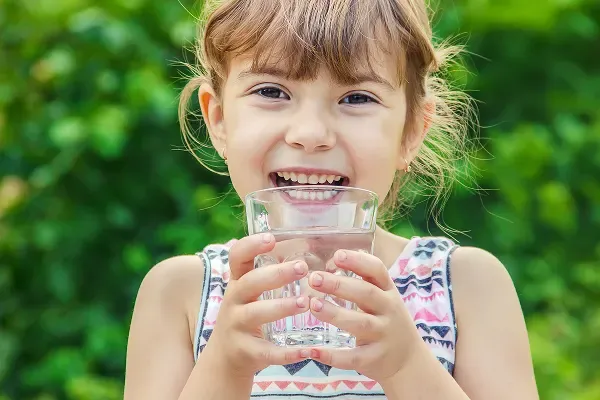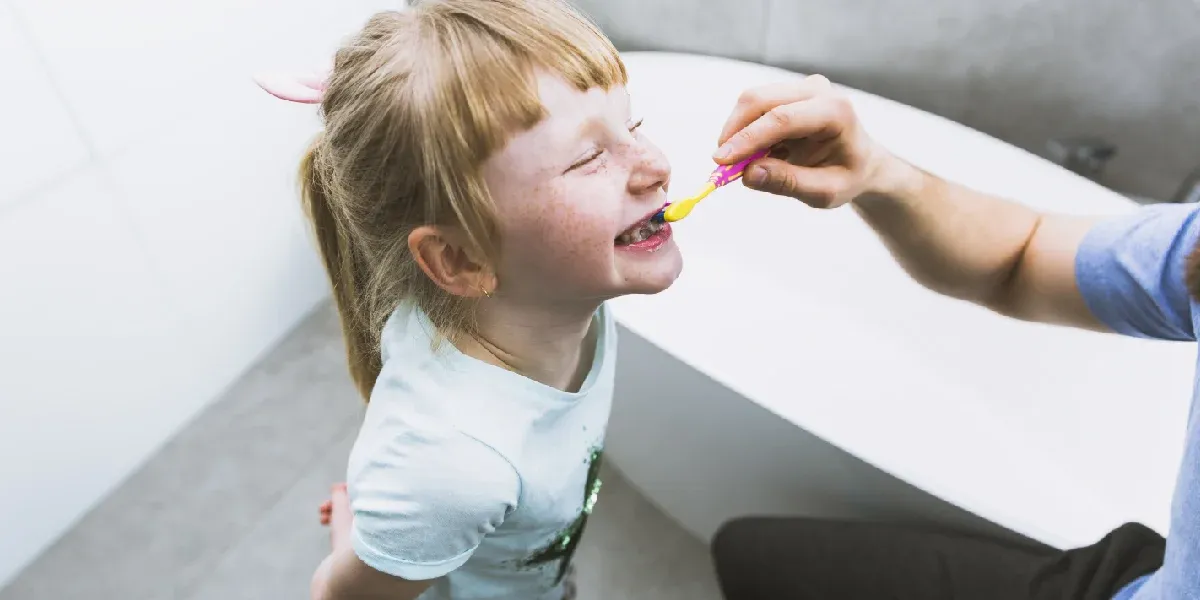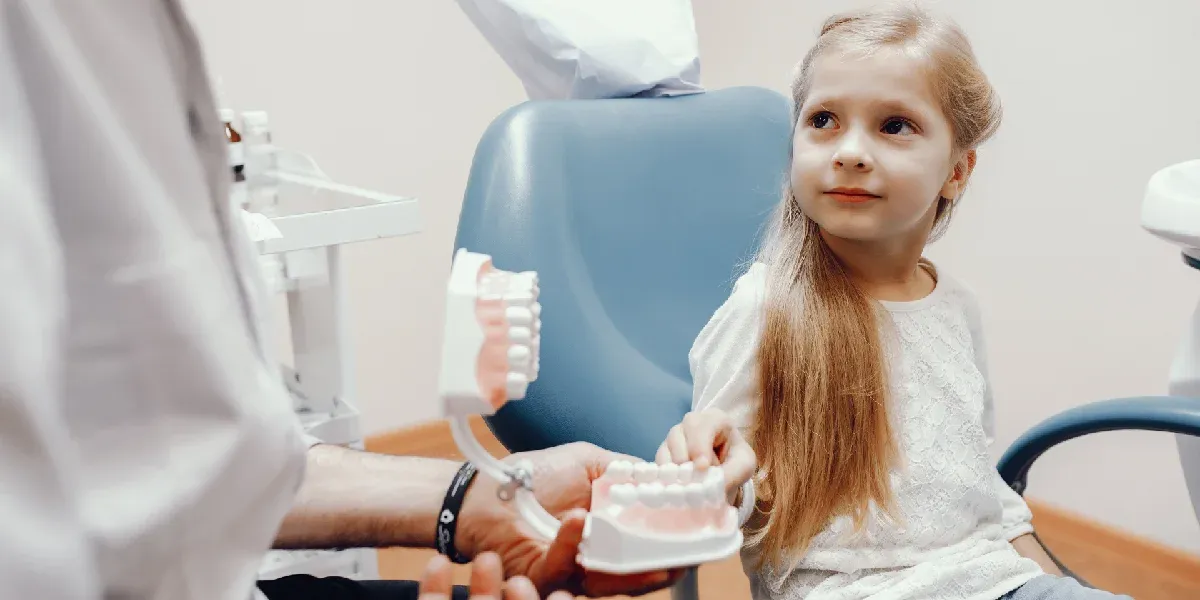
Fluoride in Drinking Water: Is It Safe and Beneficial for Your Child?
Understanding Fluoride Water Safety for Your Child
When it comes to your child's health, every decision matters — even what's in their glass of water. A question many parents ask is: Is fluoride in drinking water safe for children? The topic of fluoride water safety has become increasingly important, with ongoing conversations around both its proven benefits and its potential risks.
Used for decades in public water systems, fluoride in water is widely recognized for its ability to prevent tooth decay. But as awareness grows, so do concerns around fluoride risks in water. Is it genuinely safe, and does it really provide the benefits often claimed?
This blog explores everything you need to know about fluoride drinking water, including scientific insights, expert guidelines, and a balanced look at both the fluoride health benefits and the concerns that come with it—so you can make informed decisions for your child.

What Is Fluoride and Why Is It in Our Water?
A Natural Mineral With Dental Power
Fluoride is a naturally occurring mineral found in soil, rocks, and some food sources. Its cavity-fighting properties led to its introduction in community water supplies in the 1940s, helping to drastically reduce tooth decay, especially among children.
The process of adding fluoride to water — known as water fluoridation — is supported by numerous health organizations as a safe and effective public health measure. The goal? To improve child fluoride health and reduce dental problems early on.
Fluoride Benefits for Kids: What Science Says
Stronger Teeth From the Start
Scientific research shows that fluoride benefits kids by strengthening developing teeth. It helps build resistance to acid attacks from plaque and sugars, lowering the risk of cavities.
Fluoride health benefits for children include:
- Reinforcement of tooth enamel
- Reduced need for costly dental treatments
- Protection of both baby and adult teeth
Children who consume fluoride drinking water from an early age often enjoy stronger dental health into adulthood.
Fluoride and Children: Why Early Exposure Matters
For children aged 6 months to 8 years, fluoride is especially crucial. During this developmental window, fluoride becomes incorporated into the tooth structure, providing lasting protection. Fluoride and children are a natural match when it comes to proactive oral health care.
Fluoride Water Safety: How Safe Is It Really?
Exploring the Safe Fluoride Levels in Drinking Water
The U.S. Public Health Service currently recommends safe fluoride levels in community drinking water at 0.7 mg/L a standard designed to balance cavity prevention with minimal risk of fluorosis.
Understanding fluoride water safety means knowing that excessive amounts can pose health risks. This is why regulated, controlled dosing is critical in municipal water systems.
Fluoride Risks in Water: What Are the Concerns?
Though fluoride has undeniable dental benefits, overexposure — often through combined sources like toothpaste, supplements, and water can lead to:
- Dental fluorosis (mild white spots or streaks on teeth)
- Skeletal fluorosis in extreme, long-term high doses (rare in the U.S.)
It’s important to note that the fluoride risks in water arise mainly when levels are significantly higher than recommended. Most regulated public systems stay well within the safe range.
Recent Trends and Parental Concerns: What’s Driving the Conversation?
Why Parents Are Asking More Questions Today
In recent years, parents have become more proactive and cautious about what goes into their children’s bodies — from food to skincare to drinking water. Increased access to information (and misinformation) has led to growing discussions about fluoride drinking water and its long-term impact on child development.
Emerging Research: Fluoride and Cognitive Development
Some newer studies have questioned the neurological impact of high levels of fluoride during pregnancy and early childhood. However, leading health institutions emphasize that more evidence is needed to draw clear conclusions, and that current safe fluoride levels pose no known cognitive risks.
While social media platforms continue to amplify concern, the general consensus among health professionals is that fluoride in water, when monitored, remains both effective and safe.
Sources of Fluoride Exposure: Knowing the Full Picture
Parents should consider total fluoride exposure from all sources — not just drinking water.
Common Fluoride Sources Include:
- Tap water (especially if fluoridated)
- Toothpaste (especially if swallowed by younger children)
- Mouth rinses
- Processed foods and beverages made with fluoridated water
- Fluoride supplements or varnishes from the dentist
Monitoring and balancing these sources helps maintain optimal fluoride water safety and prevents overexposure.
How to Ensure Your Child Gets the Right Amount of Fluoride
Practical Tips for Parents
- Check your local water supply: Your city or municipal website will share whether your tap water is fluoridated and at what level.
- Supervise brushing: Use a rice-sized smear of fluoride toothpaste for children under 3 and a pea-sized amount after that.
- Avoid fluoride supplements unless prescribed by a pediatric dentist.
Being mindful of these simple steps ensures your child benefits from the fluoride health benefits without the risk of excess exposure.
Global Guidelines on Fluoride in Water
Health organizations across the world, including the World Health Organization (WHO) and Centers for Disease Control and Prevention (CDC), support the use of fluoride in water as a safe and effective way to reduce tooth decay. These bodies routinely review scientific data to ensure that safe fluoride levels are maintained, especially for children.
In countries with controlled fluoridation programs, studies have shown a significant decline in dental cavities. For parents concerned about fluoride water safety, these consistent endorsements provide confidence in the overall benefits when levels are properly regulated.
Fluoride and Children: What Dentists Recommend
Pediatric dentists widely support the use of fluoride during childhood as part of routine dental care. When asked about fluoride and children, dental professionals often emphasize:
- Early exposure to drinking water fluoride supports long-term oral health.
- Regular check-ups can help monitor fluoride intake from multiple sources.
- Parents should seek professional advice if their local water supply is non-fluoridated or contains higher-than-normal levels.
Fluoride Myths vs Facts: What You Should Know
With so much conflicting information online, it’s important to separate myth from fact. Here’s a simple breakdown:
Common Myths:
- “Fluoride is a harmful chemical.”
- “Children should never ingest fluoride.”
- “Filtered water is always better.”
Scientific Facts:
- Fluoride is a naturally occurring mineral that strengthens enamel.
- Small amounts, especially in fluoride drinking water, are beneficial to child fluoride health.
- Excessive removal of fluoride can eliminate protective effects and may require supplementation.

Making an Informed Decision for Your Child
Your child’s health is a priority, and that includes their teeth. The evidence overwhelmingly shows that fluoride health benefits—when delivered at safe fluoride levels—help prevent decay and support better oral outcomes.
Being aware of both fluoride benefits for kids and fluoride risks in water allows parents to make thoughtful choices, especially if they live in areas with naturally high or low fluoride levels. Consulting your child’s pediatrician or dentist is the best way to personalize fluoride use based on local conditions and individual health needs.
FAQs
- Q1: Is fluoride in water safe for toddlers?
Yes, in regulated amounts. Toddlers should be supervised when brushing to avoid swallowing toothpaste. - Q2: Can I use fluoride-free toothpaste if my child drinks fluoridated water?
You can, but fluoride toothpaste provides direct benefits. Ask your dentist what’s best for your child. - Q3: What if my area has non-fluoridated water?
Your dentist may recommend fluoride supplements or professional treatments to ensure proper dental protection.
Conclusion
Fluoride in drinking water offers important benefits for children’s dental health, like stronger enamel and fewer cavities. When managed properly, the fluoride risks water poses are minimal. By understanding both the advantages and the potential concerns, parents can make informed choices and ensure safe fluoride use for their child’s well-being.
Contact your kids' dentist in Stockton, Dr. Sajjad Rizvi, D.D.S. at Happy Kids Dental, to know more about Fluoride in Drinking Water: Is It Safe and Beneficial for Your Child?
Resource:
Long-Term Oral Health Maintenance for Kids
*This media/content or any other on this website does not prescribe, recommend, or prevent any treatment or procedure. Therefore, we highly recommend that you get the advice of a qualified dentist or other medical practitioners regarding your specific dental condition*
Subscribe To Our Newsletter
Get Updates And Learn From The Best


